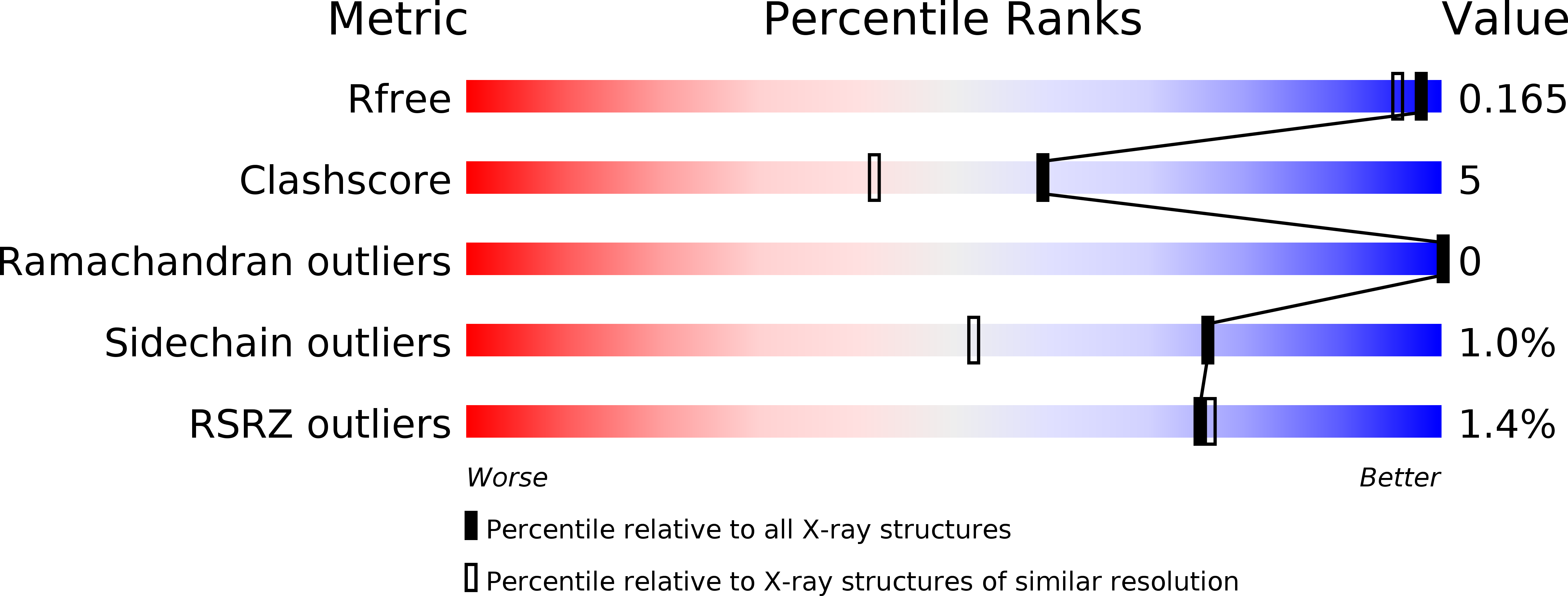
Deposition Date
2014-11-11
Release Date
2014-11-26
Last Version Date
2023-12-20
Entry Detail
PDB ID:
4D6E
Keywords:
Title:
Crystal structure of a family 98 glycoside hydrolase catalytic module (Sp3GH98) in complex with the blood group A-trisaccharide (X01 mutant)
Biological Source:
Source Organism(s):
STREPTOCOCCUS PNEUMONIAE (Taxon ID: 406556)
Expression System(s):
Method Details:
Experimental Method:
Resolution:
1.45 Å
R-Value Free:
0.15
R-Value Work:
0.12
R-Value Observed:
0.12
Space Group:
C 2 2 21


